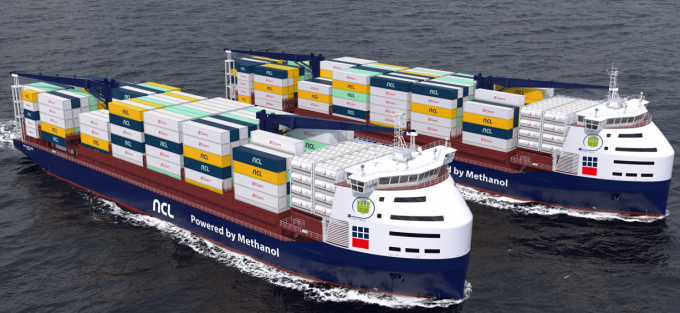Hutchison megadeal reveals dark side of container shipping
What money cannot buy

MPC Container Ships has ordered two new dual-fuel box vessels powered by methanol for use by feeder group North Sea Container Line (NCL).
The vessels will be delivered during Q3-4 24 and, like recent Maersk feeder orders, they will feature a forward-mounted bridge, 1,300 teu of ...

Comment on this article